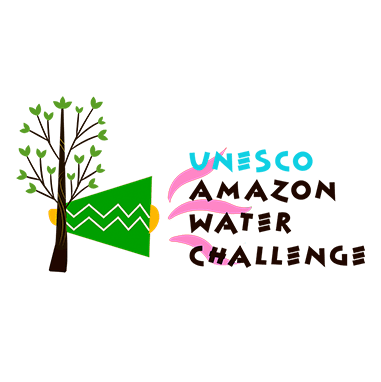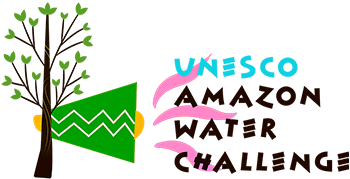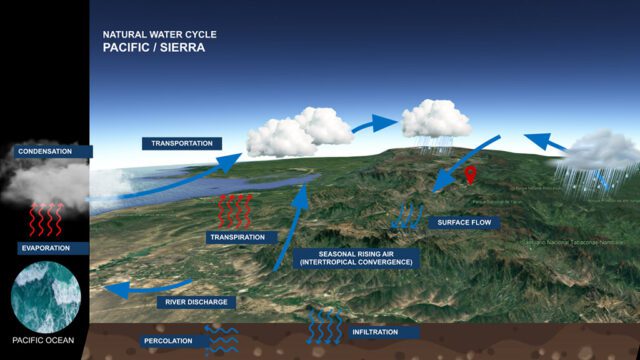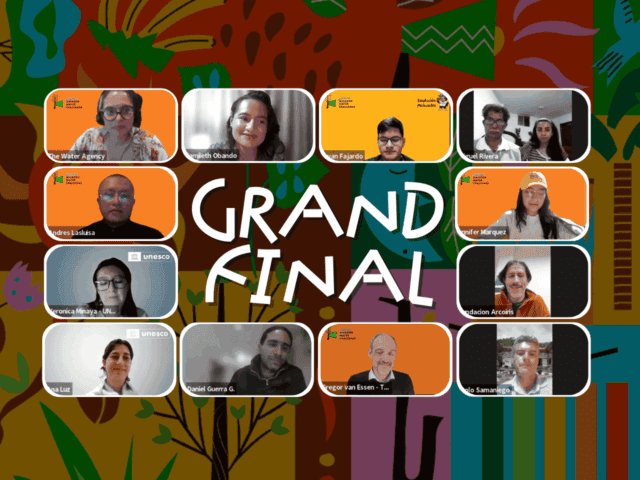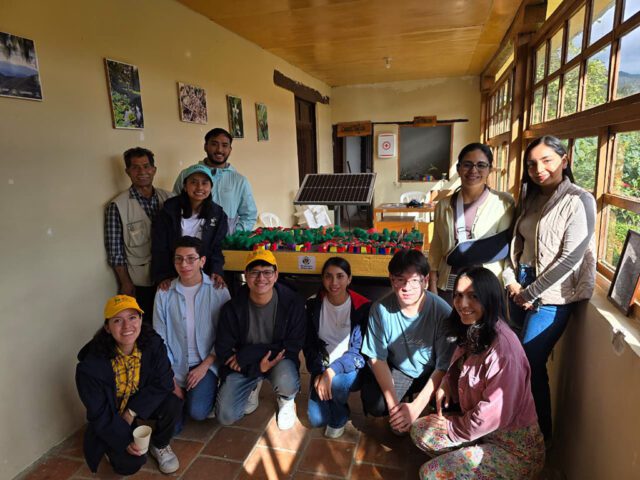The UNESCO Amazon Water Resilience Challenge – Ecuador 2025 continued with two more training sessions that explored the science and management of water systems in the face of growing environmental pressures. These trainings built on the earlier sessions, giving participants deeper insight into how water moves through natural and human landscapes, and how communities can adapt to the challenges of climate change.
Training 3: Hydrology and Water Management
Led by Dr. Igor Ogorshawara (Leibniz-Institute of Freshwater Ecology and Inland Fisheries) and Dr. Pablo Ochoa (Universidad Técnica Particular de Loja – UTPL), this session explored the movement of water through natural and human systems, emphasizing the need for integrated management to support both human communities and ecosystems. Dr. Igor Ogorshawara opened the training by introducing the hydrological cycle—not just as a natural process, but as one that is increasingly shaped by human interventions. He discussed how urbanization, land use change, and infrastructure development influence surface runoff, infiltration, and evapotranspiration patterns, particularly in tropical regions. Using examples from the Amazon, he explained how disrupted hydrological cycles can impact flood patterns, groundwater recharge, and water quality.
Dr. Pablo Ochoa followed by highlighting integrated water resource management (IWRM) as a strategic tool for balancing competing water needs. He explained key concepts such as basin-scale planning, stakeholder involvement, and ecosystem-based approaches. Participants also reviewed case studies from the Loja region, where data-driven planning and community collaboration have supported more sustainable water management.
Training 4: Climate Change, Adaptation and Resilience
Led by Dr. Sumiran Rastogi (IHE Delft) and Prof. Santiago Núñez Mejía (Universidad del Azuay), training 4 turned the focus to climate change and its growing impact on water resources. Through this session, participants examined strategies to adapt to changing conditions and strengthen resilience at both community and ecosystem levels. Dr. Sumiran Rastogi began by outlining how climate change is affecting the water cycle—from altered precipitation patterns to increased frequency of droughts and floods. He stressed that these changes are particularly severe in fragile regions like the Amazon, where water-dependent livelihoods and biodiversity are under constant threat. He introduced the concepts of vulnerability, exposure, and adaptive capacity, guiding participants through a resilience framework that helps prioritize action.
Prof. Santiago Núñez Mejía then brought a national perspective, sharing how Ecuador’s water systems are already experiencing the effects of climate variability. He emphasized the role of education, governance, and traditional knowledge in developing effective responses. His talk underscored the value of interdisciplinary solutions, where science, policy, and community engagement must work together.
Self-Paced Courses: Block 2
To complement the live trainings, participants are continuing their learning through a structured online course. After completing Block 1 earlier in the program, the second set of modules, Block 2 has been launched. This block focuses on key themes such as water politics and governance, water economics, and ecosystem services. These lessons are designed to help participants better understand the social, economic, and ecological dimensions of water management, which will support their project development in the coming weeks.
These trainings mark another important step in the challenge. We look forward to the upcoming sessions as participants continue to grow their knowledge and work toward building resilient water solutions for the Amazon.
